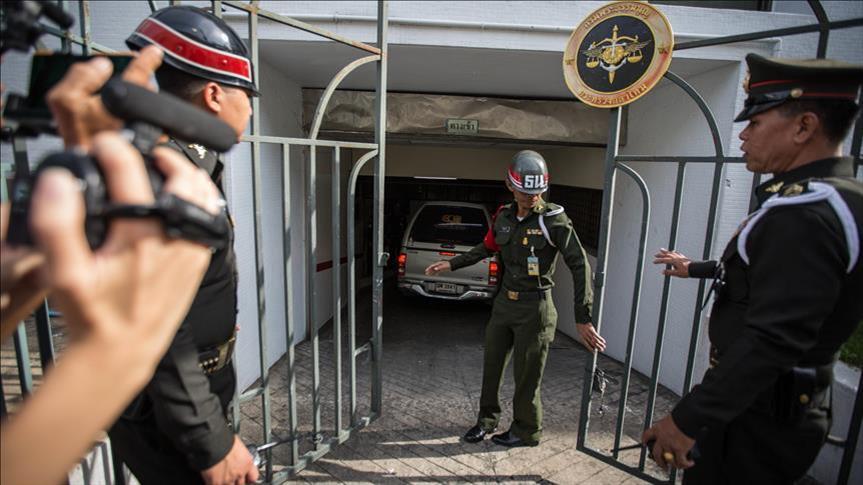Bangkok bombing trial again suspended over translations
Defence for 2 Uighur men had been trying to find translator, but military provided Uzbek woman the duo could not understand

By CS Thana
BANGKOK
The trial of two Uighur men charged with involvement in last year's Bangkok bombing was again postponed Thursday after an Uzbek woman brought in as a translator for the duo failed to be understood.
The court had been looking for a Turkic language specialist since Aug. 23, when the trial was again postponed due to the lack of a translator for the two men.
In the meantime, lawyers for Adem Karadag and Yusuf Mieraili -- who have denied charges -- approached the Munich-based group of Uighur exiles, the World Uyghur Congress, for help, but were told by the Thai military that it did not want an outsider interfering with national security matters.
"The court rejects the defense motion for an outside translator because this is a matter of national security," the judge said Thursday.
It then attempted to use an Uzbek prisoner from Bangkok's illegal detention center to translate proceedings.
However, after the woman -- who appeared in court in a prison uniform emblazoned with the word "Prisoner" -- started to speak, Mieraili rejected the translator as she did not speak Uighur.
In response, the court has suspended the trial until Oct. 13 and said it would search for a more adequate translator.
Both Uighur and Uzbek are Turkic languages -- those spoken by at least 35 Turkic peoples from Southeastern Europe and the Mediterranean to Siberia and Western China.
Karadag -- who Khanphai claims is really named Bilal Mohammed -- and Mieraili have been charged with the Aug. 17 2015 bombing at a Hindu shrine in downtown Bangkok, which left 20 people dead and 125 others injured.
Police have said that both suspects have confessed to being paid by a mastermind to build and plant the bomb, but Karadag’s lawyer has said his client was tortured into a confession by plainclothes men in military custody.
"My client was intimidated by these men. They were waterboarded, threatened with large dogs and threatened with deportation to China," Khanphai told reporters Jan. 16.
Both Karadag and Mieraili have refused to provide their addresses in China’s northwestern Xinjiang region out of “fear of reprisal" from the government, who the Muslim minority group accuses of curtailing their cultural and religious rights.
Karadag and Mieraili are the only two suspects arrested in the case, despite the fact that Thai authorities issued a list of over 15 -- with Thai, Turkish and Chinese nationalities -- in the first months of an investigation underlined as “confused” by some observers.
Several analysts have linked the bombing to the deportation in July 2015 -- a month before the bombing -- of 109 Uighur to China by the Thai junta.
The deportation raised international condemnation and demonstrations took place in front of the Thai consulate in Istanbul in Turkey, which is home to a large Uighur diaspora.
But Thai police have rejected the theory, alleging that the bombing was revenge by a human smuggling network unhappy about a crackdown by Thai authorities.


